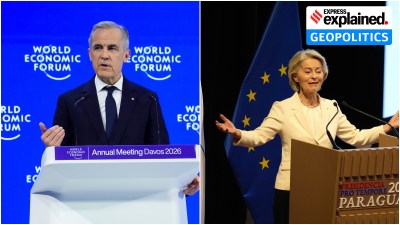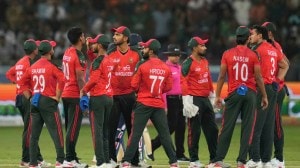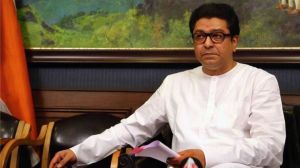Freeman prepares for the spotlight
SYDNEY, SEPTEMBER 9: If you have not heard of Cathy Freeman, the chances are you soon will. Freeman is already a household name in her nat...

SYDNEY, SEPTEMBER 9: If you have not heard of Cathy Freeman, the chances are you soon will. Freeman is already a household name in her native Australia but is destined to become a worldwide celebrity under the scrutiny of the world8217;s media at the Sydney Olympics.
As a two-time 400 metres world champion and Atlanta Olympic silver medallist, Freeman8217;s performances on the track alone warrant attention.
The 27-year-old Freeman is a red-hot favourite for the gold medal in Sydney but that is only part of the reason why she is destined to be the single most scrutinised athlete at the Games.
The main reason is that Freeman is Aboriginal and prepared to talk about her anger at the way her people have been treated.
By her own account, Freeman is naturally timid but she has refused to let her shyness stop her from revealing her darkest secrets. It is unlikely she will clam up when nosey journalists start quizzing her here.
In her biography, A Journey Just Begun, Freeman revealed how she was molested as a child. She also spoke of the tragic deaths of her sister, who suffered from cerebral palsy, and her alcoholic father. But Freeman is far from a pathetic figure. Hers is a story of a brave young woman who overcame adversity to become an inspiration for an entire people.
Freeman is a reluctant figurehead but is so deeply proud ofher heritage that she feels compelled to speak out against perceived injustices.
Bracing up for onslaught
About 12,000 Olympic participants have arrived in Sydney by Saturday but the host city hasn8217;t seen half the total expected in the days leading up to the September 15 opening ceremony.
Sydney airport8217;s director of aviation, Greg Russell, said more than 40,000 SOCOG-accredited people athletes, officials, journalists and various volunteers would come to the city for the world8217;s greatest sporting extravaganza. The influx continued on Saturday, with competitors from Finland, Germany, France, Poland, Andorra, Barbados, the USA, Canada, Egypt, Palestine, Chile, Brazil, Taiwan, Japan, South Korea, Ivory Coast, Lesotho and Cameroon touching down.
Playing it down
Australian Olympic Committee AOC president John Coates said he hoped that the AOC would not have to mediate between feuding Olympic tennis medal aspirants Pat Rafter and Mark Philippoussis.
Rafter and Philippoussis have been at loggerheads since the latter8217;s controversial decision after Wimbledon in July to withdraw from the Australian Davis Cup because of injuries.
8220;I would hope we would never have to mediate between any of our athletes,8221; Coates said, when asked about the chances of further tension between the players when they move into the athletes8217; village.
Time running out8217;
Senior International Olympic Committee IOC member Jacques Rogge warned that time was running out for Athens in their preparations to host the 2004 Olympic Games.
Rogge, head of the IOC co-ordinating commissions for the 2004 Olympics, said while the Athens Olympic organising committee ATHOC was making progress with planning there were still concerns over construction deadlines. He welcomed the involvement of the Greek government through Prime Minister Costas Simitis, but said more needed to be done, including bringing construction forward.
8220;We still are, however, concerned with the deadlines withthe construction for sports facilities,8221; he said.
Aboriginal leader8217;s call AN Aboriginal leader called for peaceful protests by indigenous Australians during the Sydney Games. Lowitja O8217;Donoghue said indigenous people would not throwthe first punch during any Olympic protests. Chairperson of the National Indigenous Advisory Committeefor SOCOG, O8217;Donoghue renewed her support for demonstrations highlighting the 8220;plight8221; of indigenous Australians, but pleaded for peaceful action. But she warned: 8220;When people meet in large numbers whether it be a football match, whether it be a protest or so on, people get heated and sometimes they boil over into violence.8221;
- 01
- 02
- 03
- 04
- 05






























